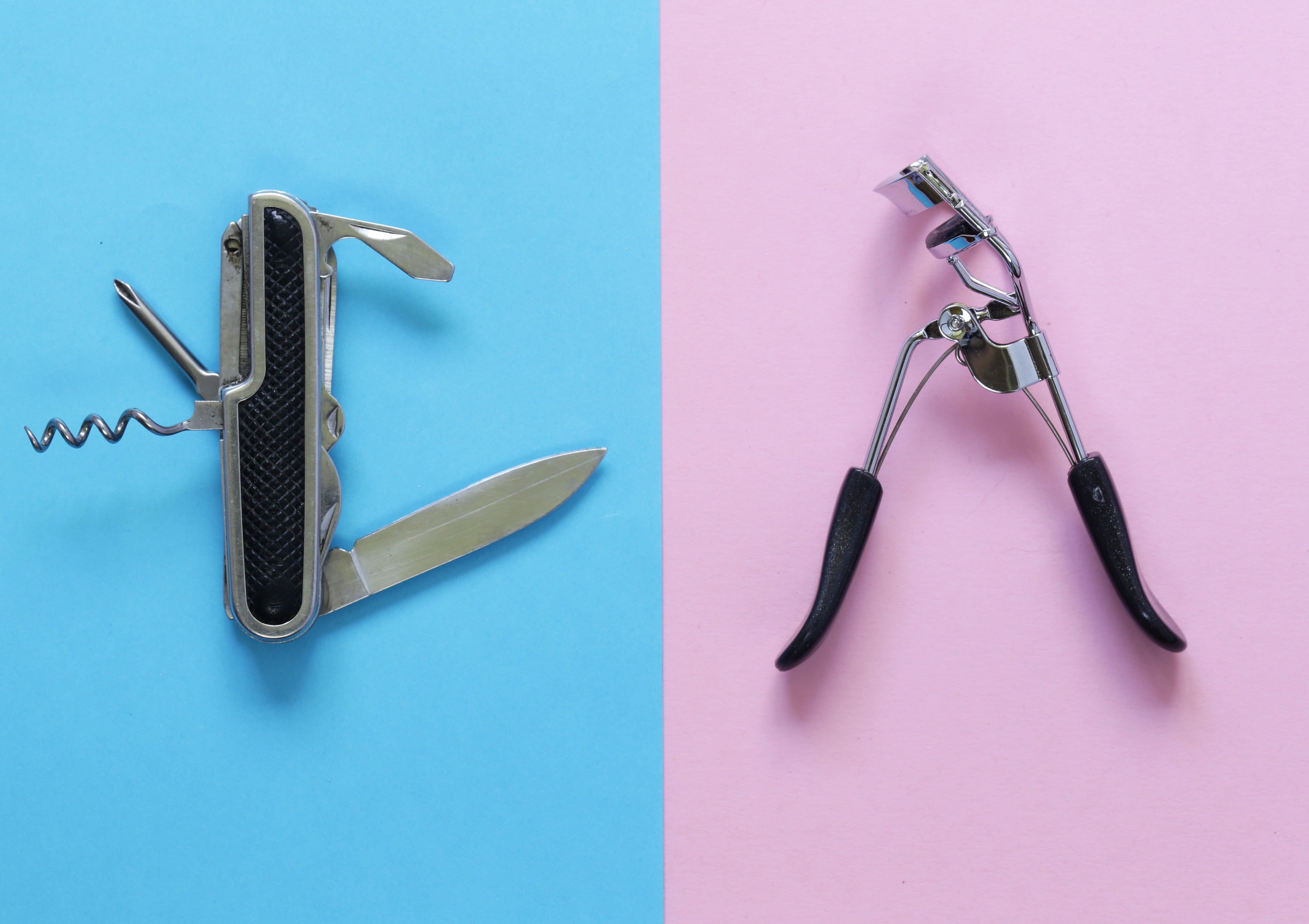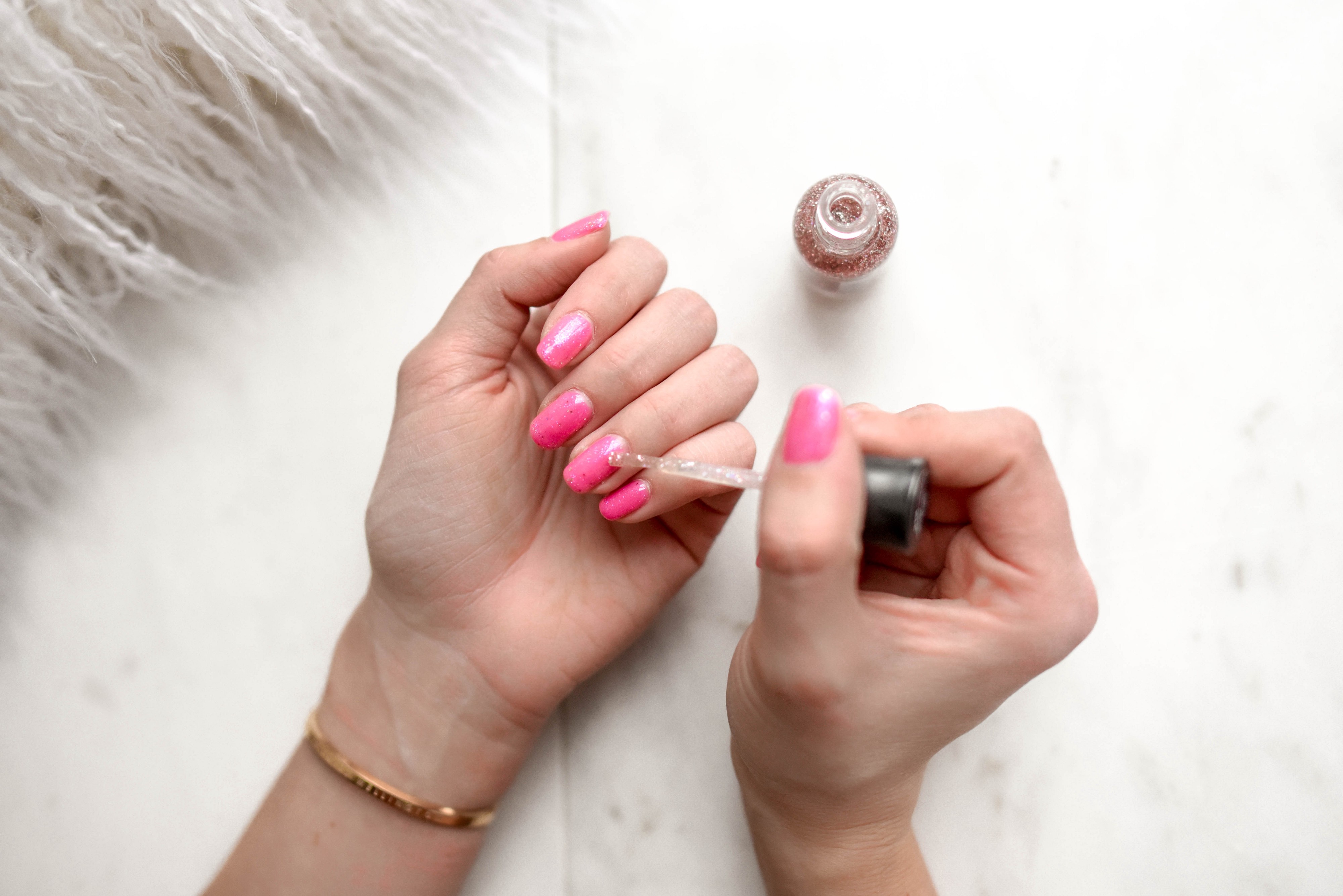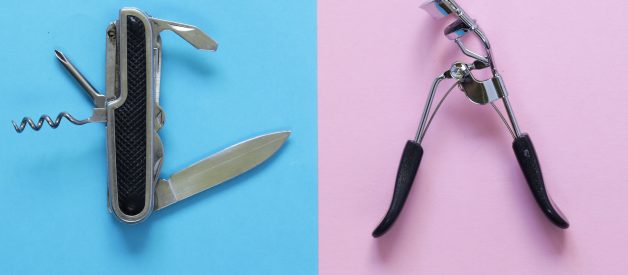Men and women alike perpetuate and suffer from it every day
 Photo: olgakr/Getty Images
Photo: olgakr/Getty Images
 Photo: Element5 Digital on Unsplash
Photo: Element5 Digital on Unsplash
Toxic femininity is not the same thing as simple ?sexism,? but sexism and toxic femininity are certainly partners in crime. Sexism says that a woman is too frail or docile to play a contact sport; toxic femininity says that you don?t want to play football anyway, sweetie, you would look horrible and sweaty in the helmet and pads. Sexism is focused on robbing women of status and rights; toxic femininity is about defining womanhood so shallowly that a woman feels de-gendered by basic human acts or neutral preferences. Both factors lead to women being compressed into impossibly tight, uncomfortable shapes. One is the carrot and the other is the stick.
I am not a woman, but I have been told many times in my life that I needed to work harder to be one. My Girl Scout leader, Mrs. Henning, was forever telling me that the curled-up, gargoyleish way I sat in a chair was unacceptable and unfeminine and forced me to sit ?normally,? with my legs together and my feet on the ground. I resented her every day that she corrected me, came to dread going to Girl Scout meetings, and never understood why my basic comfort was inherently ungirly and also inappropriate.
I received a lot of toxic-femininity-based advice as a child and teen.
Years later, I had a high school sociology teacher who aimed to illustrate the perniciousness of gender roles to the class by turning to a girl, Sarah Fischer, and snapping, ?Sit like a lady!? We all watched as Sarah Fischer?s legs automatically slammed together and then crossed over one another in a frantic, unthinking bid to make herself small. The teacher was smug and thought she had taught us something about how implicit gender roles could be. But most of us spent the remainder of the day focused on where our legs were and if we were sitting in a suitably feminine way.
I received a lot of toxic-femininity-based advice as a child and teen. I was told that not wanting to have children made me unacceptably unfeminine. Classmates said that my voice was unsuitably low and, worse, that I used it in a masculine way: I sang like a boy, and I declared things with flat confidence. I didn?t care about makeup throughout my middle school and high school years until some particularly vicious acne started to rear its head and I embraced powders and creams as a way to cover it up. I didn?t carry a purse.
People worked very hard to remedy these things for me. Friends gave me late-night makeovers that made me cry, parents and grandparents gifted me with handbags and bottles of beige stuff, peers looked deep into my purple under-eye circles and asked me why I had them. They were all trying to help, dispensing practical advice for how to win in a system that ought to have been dismantled rather than gamed.
It was all toxic femininity. It was a cultural disease. It was nobody?s fault. And everyone around me suffered from it too.
 An item that perpetuates toxic masculinity, and an example of the mockery that typically ensues.
An item that perpetuates toxic masculinity, and an example of the mockery that typically ensues.
Never mind that the very existence of these products is intended to create and foment insecurity and policing of men?s habits. Never mind that even if a masculine fear of diet drinks already existed, it was no individual, tight-assed guy?s fault alone or that mocking him for having it won?t help him learn to relax and branch out.
The same sins are being committed with women?s products, of course. Pink pens. Pink guns. Leg razors enveloped in a labia made of soap. When these products are released, it is the manufacturers who receive public ridicule rather than the women who buy them. It is Bic?s fault for being sexist and underestimating the competence and taste of women; it is not the fault of women for refusing to buy a pen in dark blue or black.
But, as with man yogurt, toxic gender roles are responsible for pink pens, and those roles are absorbed by the minds of people. And, thus, women begin to internalize the idea that they must purchase products that affirm and broadcast their femininity. Most women, whether they like to admit it or not, refuse to buy items they associate with masculinity. Infected with toxic femininity and held to impossibly harsh standards, they reach for the pink pens and the overpriced labia-ensconced razors. And most people, when tasked with buying a gift for a woman or a girl will reach for something soft, sweet, and nonthreatening, thereby perpetuating the notion that to be feminine is to be fragile and maybe even a little bit frivolous.
We are all infected with toxic femininity. We all deal in it, perpetuate it, suffer from it?every day.
![]() Years ago, I was having wine at a friend?s house while her dog sniffed and licked at my feet. She was telling me about a recent date she?d been on with a poet she?d met in a bar. My friend told me that she apologized to the poet, in the middle of sex, for the unimpressive size of her breasts. She was so unhappy with her chest and its lack of bounty that she felt she?d done wrong by this guy just by existing naked on top of him.
Years ago, I was having wine at a friend?s house while her dog sniffed and licked at my feet. She was telling me about a recent date she?d been on with a poet she?d met in a bar. My friend told me that she apologized to the poet, in the middle of sex, for the unimpressive size of her breasts. She was so unhappy with her chest and its lack of bounty that she felt she?d done wrong by this guy just by existing naked on top of him.
I certainly felt bad for her, but I was surprised that my first and loudest instinct was to tell her not to apologize during sex again?because it was unattractive. Even as I found her insecurities tragic, my gut reaction was to prioritize her attractiveness during future sexual encounters over anything else. Don?t apologize, don?t broadcast that you feel bad, don?t show to this man that you have needs. It?s unwomanly. He will mind that far more than the smallness of your boobs.
That interaction was years ago, but I still think about it. Unrelenting, impossible standards of femininity had trapped my friend in an unwinnable spot, and there I was, making it worse for her, throwing another forbidden act onto the pile.
I was still trying to be a girl back then. I had a lot of rules for myself: what I was supposed to wear, what size I was supposed to be, a high-pitched throatiness that I forced into my voice. Eventually, those rigid rules would leave me freezing cold, underweight, and with a months-long case of laryngitis caused by vocal damage. I was a victim and a perpetrator of toxic femininity, doling out the same punishments I heaped on myself. It was all toxic femininity. It was everywhere. It was nobody?s fault.


